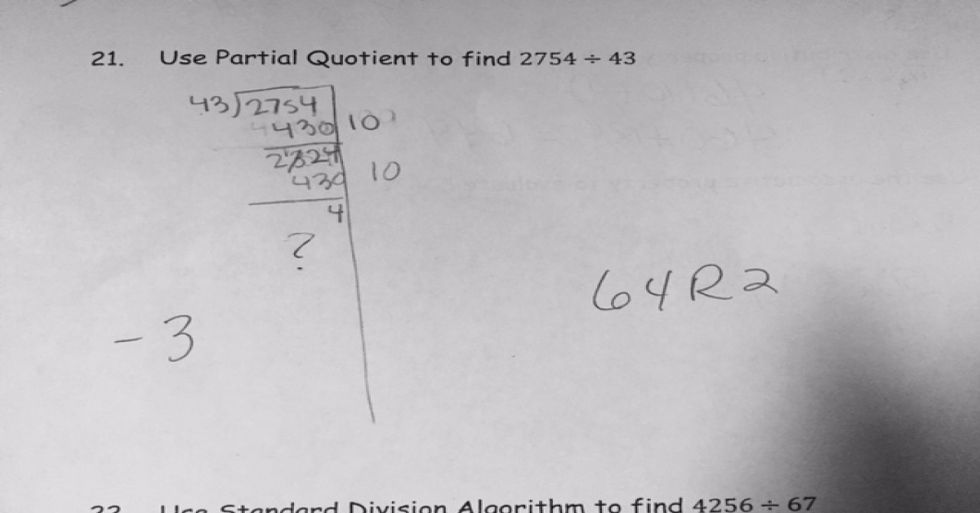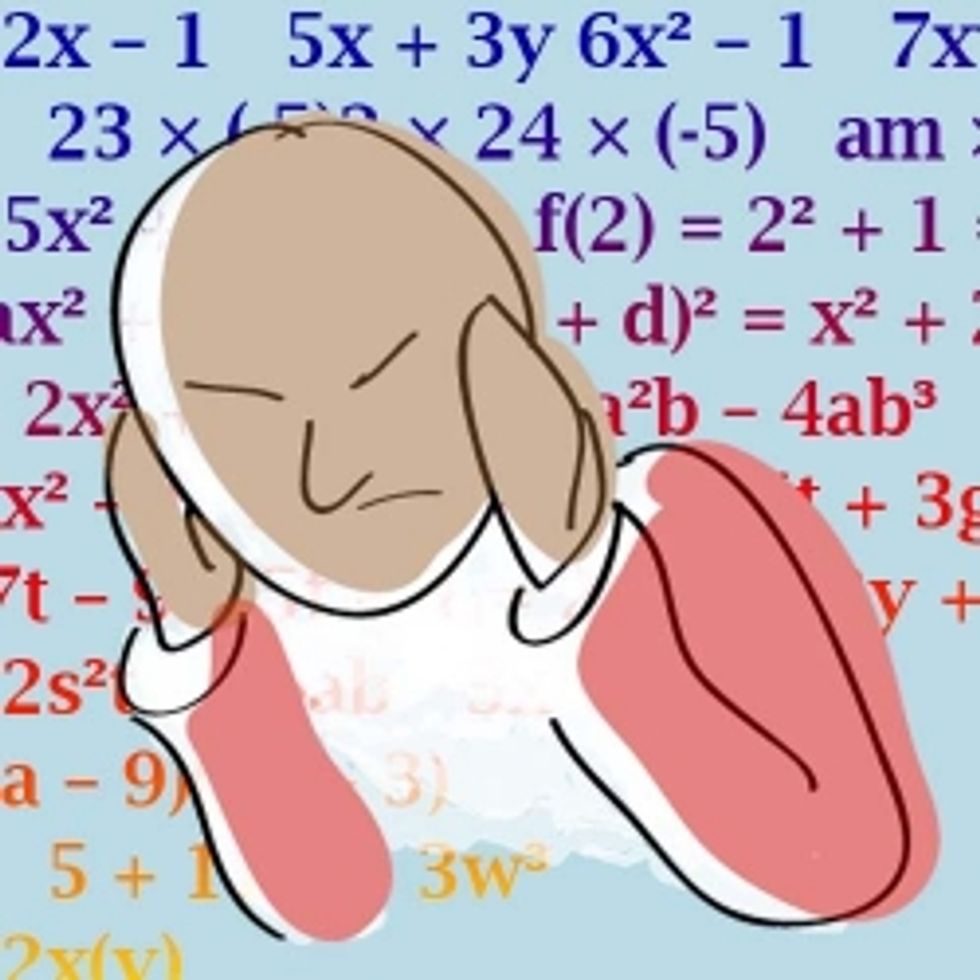When most people think of learning disabilities, they automatically assume that an individual has trouble with reading or writing. However, for many, this is not the case. Many people have mathematics-related learning issues, more commonly referred to as dyscalculia.
Dyscalculia is defined as a "difficulty in learning or comprehending arithmetic, such as difficulty in understanding numbers, learning how to manipulate numbers, and learning facts in mathematics." I have struggled with this learning issue since about the time I was in second grade, so I can account for this first-hand. Often times, people who suffer from dyscalculia may not understand simple topics.
Even the smallest amount of math is an automatic overload to the brain. Simple math problems may seem extremely difficult to them. If you're wondering how math looks like to these people, take a look at my hand-made simulation to see what it is like to be dyscalculic.
1. "Can you remind me what 9x7 is?"
2. "160/5... Ok, so, I have to start with long division... I don't know how many times 5 goes into 160..."
3. "I can't do 120 x 5 in my head... can I use a calculator?"
4. "562-428... I have to carry the 1 to the 10ths place, but I still don't understand the process of regrouping. Wait, where did you get the 9 from?"
5. "24x^2+25x-47ax-2... Where did 122^15 come from? This is all completely random, IT DOESN'T MAKE SENSE"
6 "5^9=? 4^8=? 6^7=? 7^2=14..." Teacher: "7^2=49!" "I don't understand..."
7. 896^2x725+634543FX0944734G67903S4039683907K0/7904750-9437590^143S475 "This is a huge overload... I can't do it."
8. "18/1/6=3/4+18=22... huh?"
9. "Everyone else finished their worksheet in 10 minutes and I'm only on the second problem trying to figure out this long division. I feel so rushed! Wow, I must be one stupid person..."
10. "I paid $52 and the shirt I bought was $26... so I get $16.44 back? No... $24.83 back? No, that's not right..."
What did you notice? What do these all have in common? Here's the answer: many numbers are mixed up, many are completely off, there is a lack of understanding as to where certain numbers come from, and many are rushed. These various complications represent what a person with dyscalculia may experience on a daily basis.
Whether it be math class or paying for bills/items/groceries, mathematical problems are difficult. But remember: this doesn't mean we're dumb. It just means that our brains learn in a unique way. Many individuals with dyscalculia excel in the arts, music, reading, writing, sports, and so on. We all have our own different types of intelligence.
I have also attached a link for a dyscalculia simulator that gives a better experience here. Please check it out!

















